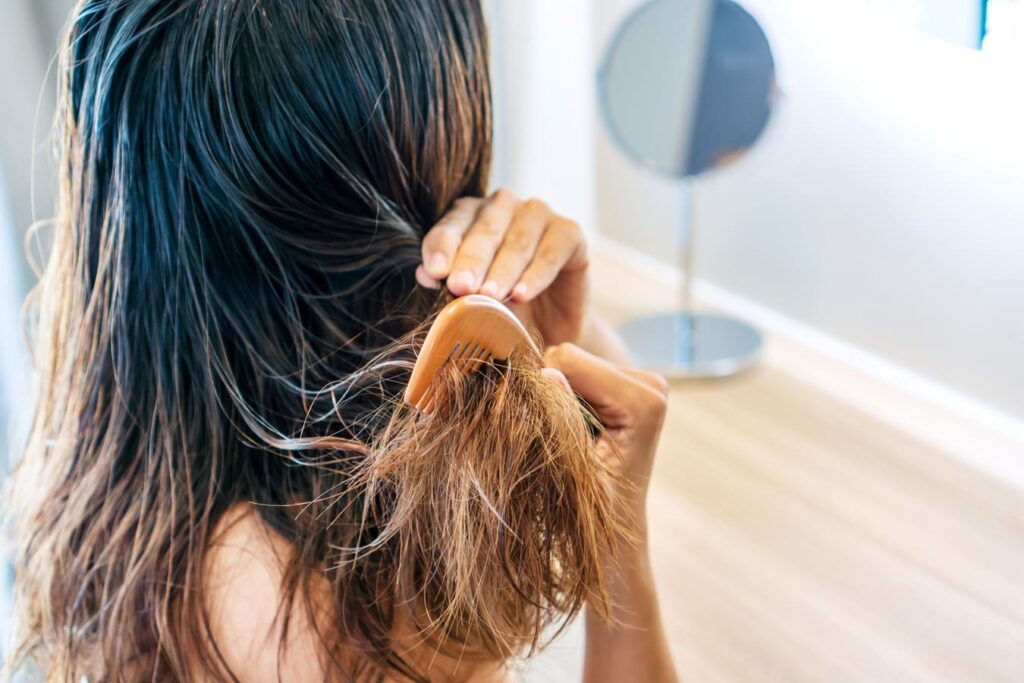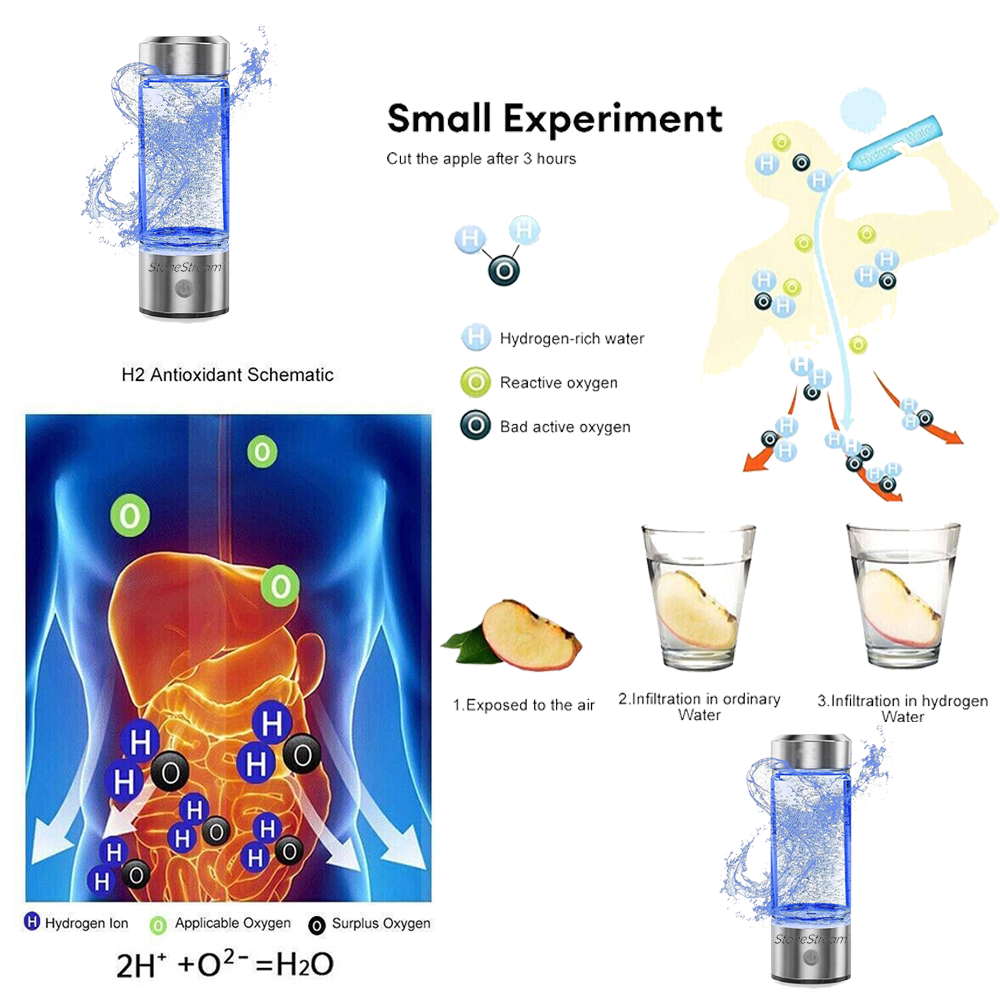How do you like your shower? Like a hot spring or a freezing delight?
At some point in life, you must have probably wondered, “Are cold showers good for you?” If you have thought of this question, you must be at least a little apprehensive of cold showers. Are we right?
Well, the truth is that lots of health professionals say that cold showers are good for you. But, what they very rarely mention is that a cool shower can be just as beneficial as a cold one. In fact, in certain circumstances, a cool shower can be even better. And, it certainly is far more pleasant! Similarly, a warm or hot shower can be good for health, but an extremely hot one can be dangerous.
In case you aren't sure about what is classified as hot or cold water, we’ll outline the temperatures here. The best temperature to have a hot shower is just above blood heat at about 100°F or 38°C. If you choose a temperature higher than this, you risk damaging your skin.
A cold shower is anything below about 70°F or 21°C. How far below that temperature you go is up to you and depends on what you can cope with.
So, what's the deal with hot showers vs cold showers? Which kind of shower is better? And is it a good idea to use varying water temperatures for different purposes? All we can do is present the facts and leave it up to you to decide whether you prefer a hot shower or a cold shower.
Benefits of Hot Showers
One of the simplest differences between hot showers and cold showers is that soap doesn’t lather up properly in cold water. Since the primary reason for having a shower or a bath is to get clean, it makes sense to use warm or slightly hotter water.
Apart from being a pleasant and efficient way to get yourself clean, warm and hot water also have certain health benefits. Some of these benefits seem obvious, but others might surprise you. Let’s delve into these and see what they are. So, what are the advantages of a hot shower?
Relieves Stiff Muscles
Now, this is an obvious one. If you have sore or stiff muscles from too much exercise or neck pain from having a rough night's sleep, try having a hot shower. The warm water against your skin will massage the muscles whilst the heat will promote blood circulation to the skin, encouraging the healing of small tears and strains on the surface of muscles.
Relieves Stress
A hot shower will relax your muscles and help to reduce tension. Sounds perfect for getting refreshed after a hard day at the office, doesn't it? On the other hand, if you had to lockdown during the pandemic, you’ll know that working from home can be just as stressful as going into the office every day. But don't despair, a hot shower will set you up for a relaxing evening at home.
Helps You Sleep Better
Because the hot water relieves stress and relaxes muscles, it will also get your body and mind into a state ready for sleep. You don’t need to take sleeping pills — a warm or hot shower is probably one of the best remedies for sleeplessness.
Relieves Congestion
If you are suffering from a chesty cough or a blocked nose, steam from a hot shower is one of the best ways to relieve the symptoms. The warm moisture dilutes the mucus and makes it easier for the body to remove it.
Relieves Migraines and Headaches
Unless you have a medical issue, the most common cause of pain associated with headaches and migraines is the constriction of blood vessels in the brain. The warmth from a hot shower dilates the blood vessels, increasing the blood flow to the neck, shoulder muscles, and brain, thus reducing headaches.
By the way, remember that if you have recurring and distressing headaches that don’t respond to home remedies, speak to a doctor.
Benefits of Cold showers
Even though cold showers can be an unpleasant experience, they are very common in many tropical countries and have been popular throughout history in various cultures. Why so? What fantastic benefits outweigh the unpleasantness of being immersed in cold water?
If you look back at the start of this article, you’ll find that a cold shower is regarded as any temperature below about 70°F or 21°C. If you research the benefits of cold water immersion, you’ll find many weird and wacky philosophies that promote this as a way to cure just about any disease you can think of. But, is there any truth in these? Cold water probably can’t cure diseases — otherwise it would be part of mainstream medicine. But, it is common in hospitals to reduce a fever temperature using ice packs, and using cold water may be a way to tone up your body for exercise and sport.
Many athletes, bodybuilders, and celebrities use cryo-therapy to improve their health and well-being. One particular method of cryo-therapy is called the Wim Hof Method, which has cold or iced water immersion as its main feature. If you want to try this method as part of your regular exercise routine, the Wim Hof Method Academy has a website on which you’ll be able to sign up for the training under the watchful eye of its team of instructors. At the time of writing, they’re offering a free mini-class to teach you the rudiments of the method.

Wim Hof, the inventor of the Wim Hof Method, emerging from icy water.
So, What Do Cold Showers Actually Do?
Whereas hot showers encourage blood flow near the skin, cold showers encourage better circulation deeper into the body and around your organs. Increased blood flow to your organs will help them operate more efficiently. Here are some advantages of cold showers:
Increased Energy
Cold showers in the morning invigorate the body, leaving you gasping for air in a good way! This increases your oxygen intake and heart rate. Your brain wakes up quickly — improving your awareness, energising your body, and getting you ready for your daily routine.
Improves Resilience
As we said earlier, cold showers are difficult to get into unless you're already used to them. You need some time before your body becomes accustomed to the colder temperature of the water. But the good news is that cold water numbs your nervous system and reduces stress. Your calmer outlook, as a result, may make you less likely to panic and overreact to stressful circumstances.
Boosts the Immune System
The body increases its metabolism as a natural reaction to taking a cold shower. Your body reacts to the trauma and produces more blood, especially white blood cells, as a way of fighting off the perceived attack. The increased number of white blood cells improves our ability to withstand disease and the increased core blood flow helps to regenerate damaged cells.
Rejuvenates Skin
Overusing hot water strips the natural oils from the body and reduces the effectiveness of the fatty layer just under the skin. We need these as they both help keep our skin moist and flexible; the fatty layer helps to protect our bodies from the cold. Fortunately, cold water doesn’t affect either of these, allowing you to maintain a flexible and rejuvenated skin layer.
May Help with Depression and Anxiety
When we immerse our body in cold water, the shock forces our nervous system to send a message to the brain that then releases hormones to reduce depression. There is also evidence to suggest that cold showers help with anxiety. Showering with cold water is also a popular grounding exercise that is known to calm the five senses and soothe the mind.
Although mental health problems should not be ignored and always require the advice of a qualified doctor, a cold bath or shower may help your body cope with depression. However, if you have depression and wish to see how effective a cold shower can be, speak to your doctor first.
Massage and Hydrotherapy
Many massage therapy sessions use cold and hot water shower jets to stimulate different parts of our bodies. In fact, modern shower heads have settings to provide different spray patterns for varying purposes.
So, you can opt for a shower head with different types of spray patterns such as the StoneStream® EcoPower multifunction shower head. Such a shower head will allow you to have your own massage and hydrotherapy session every day at a fraction of the cost.
Additionally, combining the massage with soothing oils will bring the benefits of basic aromatherapy techniques into your daily shower. Or, you can just go for our Vitamin C shower head which has a soothing aroma and maintains the pH of skin and hair. Here's an article that explores how you can add aromatherapy to your shower routine!
StoneStream EcoPower ShowerHead

Buy Now
Showering Tips
The best way to incorporate cold shower massage into your routine is to start with a normal hot shower. Use soap to wash the grime off your skin.
Then, gradually lower the water temperature for a few minutes until it is cold enough to make you want to get out of the shower. Stay with this temperature for a while so that your body becomes used to the cold.
Choose the massage or pulsing option and move the shower head across your body, working on the various muscles and joints.
When you’ve had enough, turn the water off and rub your skin with massage oil. Even better, ask your partner to do it for you! The friction from the rub will stimulate your skin and get the blood flowing back to the surface.
Do this two or three times a week and you will start to feel more refreshed and relaxed.
Choose Your Shower Head Wisely
Many manufacturers design and produce shower heads with varying settings to produce different spray patterns. StoneStream® has popular and highly durable shower heads, such as the EcoPower Shower Head, that feature three useful spray settings:
-
Rainfall.
-
Jetting.
-
Massage.
Each of these spray patterns provides a different sensation and use. Try each one to get a feel for your favourite. To shop for shower heads and shower accessories, head over to our website.
We hope this article opened your eyes to the many applications and benefits of your shower. In particular, if you already use your shower for hot water, you now know that you can get real benefits from cold showers too. Enjoy your soothing shower!




1 comment
good article https://docs.google.com/